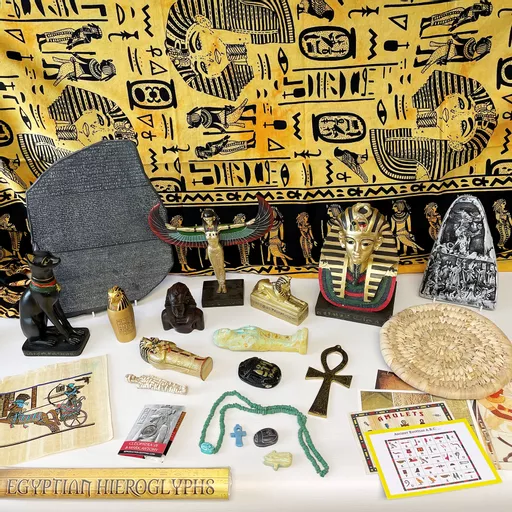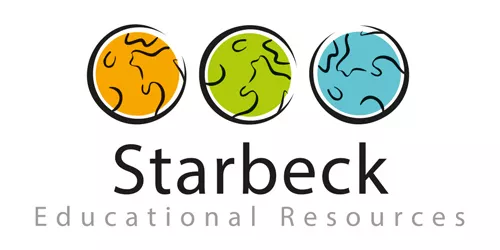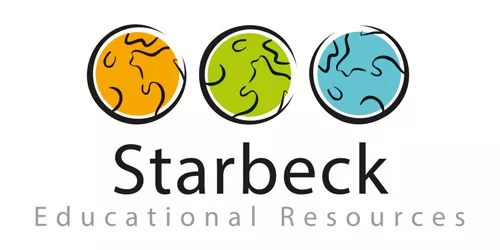Today, we’re exploring one of the most amazing artefacts ever discovered – the Rosetta Stone. Sounds exciting, right? Let’s find out why this ancient chunk of rock holds the key to unlocking Egypt’s mysterious past!
What Is the Rosetta Stone?
Imagine a giant stone tablet covered in writing. But not just any writing – this stone has THREE different types of writing on it! Sounds like a puzzle, doesn't it? Well, that’s exactly what it was: a puzzle that took scholars years to solve. The Rosetta Stone is like a magical codebreaker for ancient Egyptian hieroglyphs, and we’re about to find out how.
Discovered in 1799 by French soldiers in a small town called Rosetta (hence the name), this amazing artefact contains the same message written in three different scripts: ancient Greek, Demotic (a type of Egyptian script), and Egyptian hieroglyphs. Why three scripts? Good question! It’s because the message on the stone needed to be read by different people – those who read Greek, those who read Demotic, and the priests who read hieroglyphs.
The Codebreaker: How the Rosetta Stone Helped Decode Hieroglyphs
For a long time, no one could read hieroglyphs, those little pictures that look like birds, eyes, and wavy lines. Ancient Egyptian writing was a mystery for thousands of years. But then the Rosetta Stone came along!
A clever man named Jean-François Champollion (say that three times fast!) realised that because the same text appeared in three languages, he could use what he knew about ancient Greek to figure out the other two scripts. And guess what? He cracked the code! Thanks to him, we can now understand the language of the pharaohs and learn about Egypt’s fascinating history.
Why Is the Rosetta Stone Important?
The Rosetta Stone is more than just an old rock – it’s the reason we know so much about ancient Egypt today. Without it, we might still be scratching our heads, wondering what those hieroglyphs were saying. The stone helped unlock thousands of years of history, from the great kings and queens of Egypt to everyday life by the Nile.
The Rosetta Stone also teaches us something important: sometimes, solving a big puzzle takes time, teamwork, and a lot of patience. So, the next time you’re solving a tricky problem in class, remember the Rosetta Stone and keep going!




Fun Activities for KS1 and KS2 Historians!
Now that you’re an expert on the Rosetta Stone, it’s time for some fun activities:
-
Write Your Name in Hieroglyphs: Ancient Egyptians used symbols to represent sounds. Can you find the hieroglyphs for your name? Challenge your friends or pupils to decode each other's names!
-
Decode a Message: Create a simple message using hieroglyphs and challenge someone to decode it. Need help? Look up a hieroglyph alphabet and let the decoding begin!
-
Rosetta Stone Drawing Challenge: Imagine you’re an ancient Egyptian artist. What symbols would you carve onto a stone to leave a message for future generations? Draw your own version of the Rosetta Stone!
Teacher Tips: Bringing the Rosetta Stone to Life in the Classroom
Teachers, this artefact opens the door to so many wonderful lessons. Here are a few ideas to inspire your teaching:
-
Explore ancient writing systems: Compare Egyptian hieroglyphs with other writing systems from history. What other codes or languages can your class investigate?
-
The power of language: Discuss the importance of language and communication. How did the Rosetta Stone help people communicate across different cultures?
-
Hieroglyph art: Set up an Egyptian-themed art lesson where students design their own “Rosetta Stones” using a combination of symbols, hieroglyphs, and modern text.
Closing Thoughts
The Rosetta Stone is a true wonder of the ancient world – a stone that helped bring the past to life. So next time you’re learning about ancient Egypt, remember that it all started with one stone and a group of clever people who never gave up on cracking the code.
Until next time, fellow adventurers! Keep your curiosity alive and who knows – maybe one day, you’ll be the one to unlock the secrets of history!
Want to learn more? Starbeck Education has plenty of resources on ancient Egypt and other fascinating historical topics. Let’s keep discovering together!














